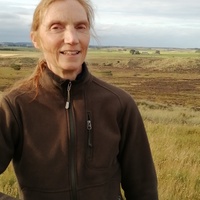
Chair in Health Services Research and Philosophy
- Email Address
- vikki.entwistle@abdn.ac.uk
- Office Address
- School/Department
- School of Medicine, Medical Sciences and Nutrition
Biography
I am Professor of Health Services Research and Philosophy with academic homes in both the Aberdeen Centre for Evaluation (formerly Health Services Research Unit) within the Institute of Applied Health Sciences on the University's Foresterhill campus and Philosophy (School of Divinity, History, Philosophy & Art History) on the Old Aberdeen campus.
My research and teaching are highly interdisciplinary. Broadly speaking, I use philosophy and social research to understand and address concerns about quality, ethics and social justice in health care, public health and (more recently) funeral provision and work with the dead and bereaved. I am particularly interested in what are sometimes called person-centred approaches to service provision - you might prefer to talk about the humanity in health and social care provision. I often use feminist theorising and a relational capabilities approach to human wellbeing in my work.
I've had the privilege of working in, and visiting, a number of universities internationally, gravitating back to the University of Aberdeen each time with an extended range of valued colleagues and learning.
Qualifications
- BA (hons) Natural Sciences and Theology1986 - University of Cambridge
- MSc Information Science (Distinction)1990 - City University, London
- MA Philosophy (Distinction)2008 - The Open University
- PhD Information Science1994 - City University, London
External Memberships
Visiting Professor, National University of Singapore (2020-2024)
Visiting Research Fellow, University of South Australia (2024)
International Network on Feminist Approaches to Bioethics (Joint Co-ordinator, 2016-2020; Advisory Board Member ongoing)
Editorial board member for:
Asian Bioethics Review
Health Care Analysis
International Journal of Feminist Approaches to Bioethics
Latest Publications
Why does funeral attendance matter?: Revisiting 'Configurational Eulogies' in light of the COVID-19 pandemic in the UK
Riley, J., Entwistle, V., Arnason, A., Locock, L., Crozier, R., Maccagno, P., Pattenden, A.Mortality, vol. 29, no. 4, pp. 706-727Contributions to Journals: ArticlesTelephone consulting for ‘Personalised Care and Support Planning’ with people with long-term conditions: a qualitative study of healthcare professionals’ experiences during COVID-19 restrictions and beyond
McCann, S., Entwistle, V., Oliver, L., Lewis-Barned, N., Haines, R., Cribb, A.BMC Primary Care, vol. 25, 193Contributions to Journals: ArticlesValues and Ethics
Cribb, A., Entwistle, V., Mitchell, P.Cambridge University Press, Cambridge. 44 pagesBooks and Reports: BooksMaking ends meet: A conceptual and ethical analysis of efficiency
Mitchell, P., Cribb, A., Entwistle, V., Crowe, S., Utley, M.Kennedy Institute Ethics Journal, vol. 34, no. 1Contributions to Journals: ArticlesTackling disrespect in healthcare: the relevance of socio-relational equality
Entwistle, V., Cribb, A., Mitchell, P.Journal of Health Services Research & Policy, vol. 29, no. 1, pp. 42-50Contributions to Journals: Articles
Prizes and Awards
Honorary Fellow, Faculty of Public Health (2018)
Research Overview
I use social research and practical philosophy to help understand what matters for 'good' public health, healthcare and care of the dead and bereaved, to analyse ethical issues, and to consider how policy and practice should be developed in those domains. I seek to take seriously the plurality of values, diversity of perspectives, complexity of social relationships and demands of social justice.
Research Areas
Accepting PhDs
I am currently accepting PhDs in Applied Health Sciences, Philosophy.
Please get in touch if you would like to discuss your research ideas further.
Applied Health Sciences
Accepting PhDs
Philosophy
Accepting PhDsResearch Specialisms
- Ethics
- Feminism
- Health and Social Care
Our research specialisms are based on the Higher Education Classification of Subjects (HECoS) which is HESA open data, published under the Creative Commons Attribution 4.0 International licence.
Current Research
I am currently working on several projects:
'But why is that better?' explores what applied philosophy and ethics can contribute to healthcare improvement. This is a collaboration with Professor Alan Cribb and Dr Polly Mitchell of King's College London. It was funded by the Wellcome Trust until November 2024 and we are currently finalising a monograph under contract with Bloomsbury. The project webpage (including links to the project's journal outputs) is at https://www.kcl.ac.uk/research/but-why-is-that-better-project .
Developing the foundations for a Centre (currently 'in development') for Interdisciplinary Death Studies. This broad project initiative builds from the collaboration and learning that for me were initiated with the ESRC funded project 'Developing practical ethics of care for the dead and bereaved' examines what we can learn from the disruption and development of funeral practices during COVID-19. One of the main outputs from that project was the Care in Funerals Casebook - an online resource to support reflection and discussion of values and practical and ethical challenges in funeral provision ( www.abdn.ac.uk/care-in-funerals-casebook ). Developmental work for the Centre, which I co-lead with Dr Arnar Árnason, includes fostering internal and external network development and supporting grant writing.
Contributions to the Plan A project (developing a decision aid to support planning for either vaginal or caesarean birth) and the I6 initiative (to foster research to improve maternity service provision, particularly for underserved communities), both led by Dr Mairead Black.
Collaborations
Other current collaborations include with:
Professor Alan Cribb (King's College London), including development of work on the value of healthcare relationships.
Mr Devanand ANANTHAM (PhD candidate), Dr VOO Teck Chuan (National University of Singapore). Doctoral supervision: Doctor-patient partnerships: the key to a better standard of medical advice?
Teaching Responsibilities
For Academic Year 2024-25 my main teaching commitments are:
Lecturer for PU5056/5062 Key Concepts in Global Health (covering human rights, justice and ethics in global health)
Lecturer for PH1522 How Should One Live?
Lecturer for AY1505 Death! (covering Funerals and COVID-19: learning from disruption)
Lecturer for PH2542 Philosophy and Society (covering philosophy of quality and philosophy healthcare improvement)
Supervisor for PH402D Dissertation in Philosophy
Lecturer for PH5069 Philosophy and Society (online)
Project and dissertation supervision:
I will be very happy to discuss supervision possibilities with postgraduate students from diverse disciplinary backgrounds who are interested in pursuing questions relating to questions about quality in healthcare and deathcare provision, and/or ethics and social justice in domains relating to health, wellbeing and death. I particularly welcome inquiries from people who want to work with feminist approaches and/or to draw on a capability approach.
I also contribute to the supervision of philosophy honours projects relating to ethics and/or feminist philosophy.
Previous teaching:
For Academic Year 2023-24 my main teaching commitments were:
Lecturer for PU5056/5062 Key Concepts in Global Health (covering human rights, justice and ethics in global health)
Lecturer for PH1522 How Should One Live? (covering feminist approaches to ethics, and the capability approach)
Lecturer for AY1505 Death! (covering Funerals and COVID-19: learning from disruption)
Lecturer for PH2542 Philosophy and Society (covering philosophy of quality and philosophy healthcare improvement)
Supervisor for PH354p Philosophy Honours Research Project
Supervisor for PH402D Dissertation in Philosophy
For Academic Year 2022-23 my main teaching commitments were:
Course co-ordinator and academic lead for PU5528 – Values and Ethics in Public Health
This Masters level (level 5) course is offered as an elective for several postgraduate degrees in Applied Health Sciences.
Lecturer for PH1522: How Should We Live?
For this level 1 course, I contribute introductions to Feminist Approaches to Ethics, and the Capability Approach.
Supervisor for PH354p: Philosophy honours research project and PH402D: Philosophy Dissertation
Lecturer for PH5066: Philosophy and society
Lecturer for PH5568: Impact and engagement
Supervisor for PH5067: Readings in Philosophy and Society and PH5905 Philosophy and Society Dissertation
These Masters level (level 5) courses are part of the MLitt in Philosophy and Society.
For Academic Year 2021-22 my main teaching commitments were:
Lecturer for PH1522: How Should We Live?
For this level 1 course, I contribute introductions to Virtue Ethics, Feminist Approaches to Ethics, and the Capability Approach.
Lecturer for Ph5568: Impact and engagement
This Masters level (level 5) course is part of the MLitt in Philosophy and Society.
Supervisor for PH5067 – Readings in Philosophy and Society
This Masters level (level 5) course is part of the MLitt in Philosophy and Society.
Supervisor for PH402D – Philosophy Dissertation
Academic lead for Weeks 1-6 for PU5528 – Values and Ethics in Public Health
This Masters level (level 5) course is offered as an elective for several postgraduate degrees in Applied Health Sciences. (Please note the course co-ordinator for AY2021-22 is Dr Samantha Donnelly)
For Academic Year 2020-21 my main teaching commitments were:
Course co-ordinator for PU5528: Values and ethics in public health
This Masters level (level 5) course is offered as an elective for several postgraduate degrees in Applied Health Sciences.
Lecturer for PH1522: how should we live?
This level 1 course is co-ordinated by Professor Beth Lord. I contributed introductions to Virtue Ethics, Feminist Approaches to Ethics, and the Capability Approach.
Lecturer for PH306D: contemporary research topics in philosophy
This level 3 course is co-ordinated by Dr Luca Moretti. I contributed teaching on various questions relating to Trust, and on the use of Thought Experiments to examine ethical issues.
